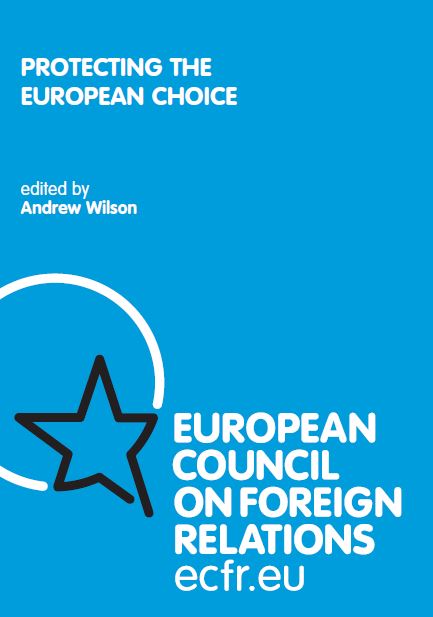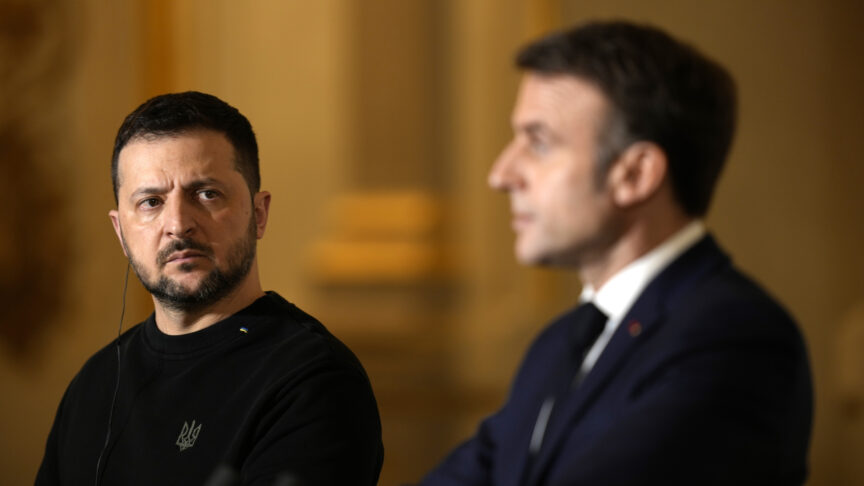Protecting the European Choice
Europe must change policy towards Russia to protect partnering countries
Europe’s Eastern Partnership has developed into crisis management and the EU must develop a new strategy towards Russia and the periphery, according to this new series of essays. As tensions around Russia continue to grow following the shooting down of a Malaysian civilian airliner, Ukraine and its fellow Eastern Partnership (EaP) countries are increasingly exposed in areas from energy to security.
The editor of the series of case studies on Ukraine, Armenia, Georgia and Moldova, ECFR senior policy fellow Andrew Wilson, argues that European Union policy towards the Eastern Partnership is “proceeding on auto pilot” and that it needs to do “more than simply protect the status quo if it is serious about maintaining the Eastern Partnership”. Wilson warns that the EU will “have to be committed to spending a lot of blood and treasure to protect countries at the sharp end of Russian pressure.”
All four case studies show that Russian pressure, for all its strength and breadth, is often self-defeating and they recommend three elements which the EU should adopt in its new strategy towards Russia and the periphery:
- The EU needs to prioritise “state building” in EaP countries which lack democracy and human rights. Security must come before strengthening their economies.
- Because of the serious weaknesses of the states involved, the EU needs to develop an instrument to help the Eastern Partnership countries deal with the new types of pressure that Russia will continue to apply.
- The EU needs a vision of how to engage with Russia in a new security framework.
The four studies by leading experts show the Eastern Partnership countries have different vulnerabilities that require a stronger EU approach:
- In Ukraine President Putin is trapped in a “hybrid war” but does not want to engage in large-scale intervention. Andrew Wilson suggests the EU should keep up the pressure on Russia with sanctions and should provide non-lethal military aid and assistance for Ukrainian law enforcement bodies.
- Armenia’s sudden U-turn away from a planned Association Agreement with the EU in favour of joining the Russian-led Customs Union deeply entrenched its dependence on Russia. Richard Giragosian suggests the EU engage Armenia in ways which recognise its fragility and vulnerability.
- Georgia is vulnerable to Russian pressure in investment, trade, energy and remittances. Sergi Kapanadze warns “…the Georgian government’s confidence that it is stronger and more able than Ukraine to withstand Russian pressure is misguided and dangerous.”
- Moldova, which relies on Russia for imported gas, could face further agricultural sanctions and the expulsion from Russia of Moldovan workers. Stanislav Secrieru says the EU should support Moldovan energy co-operation with Romania and Ukraine and make plans to deal with potential Russian trade restrictions and attempts to destabilise the situation in Transnistria.
In his introduction to these case studies Andrew Wilson says that since its inception the Eastern Partnership has been a low cost exercise in ambiguity and warns that “Russia has used military force to change borders. In the new environment, countries like Ukraine will find it difficult to transform themselves and Russian will not compete on the EU’s terms. That means the EU must develop a new strategy towards Russia and the periphery.”
The European Council on Foreign Relations does not take collective positions. ECFR publications only represent the views of their individual authors.



